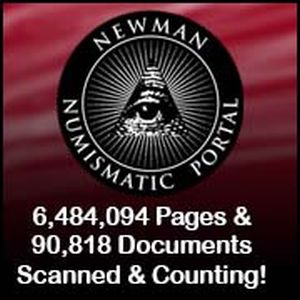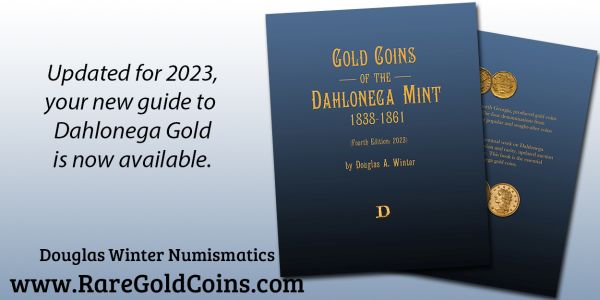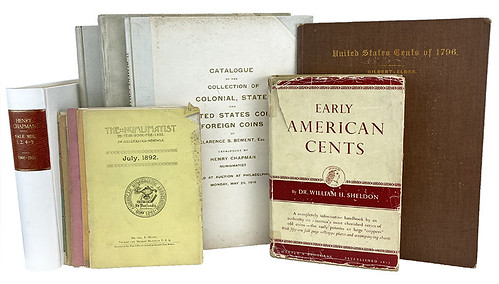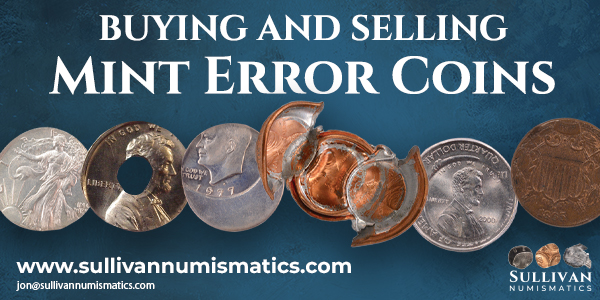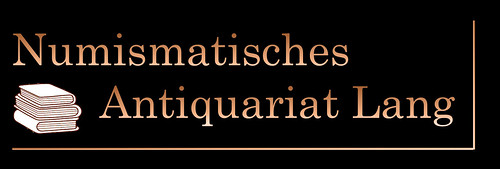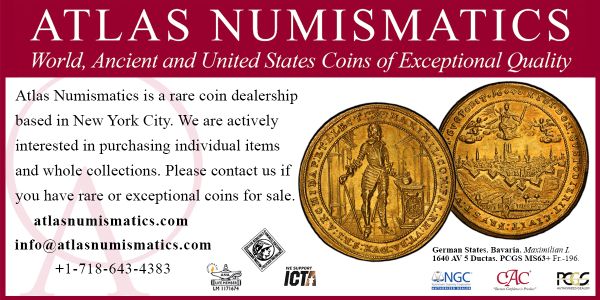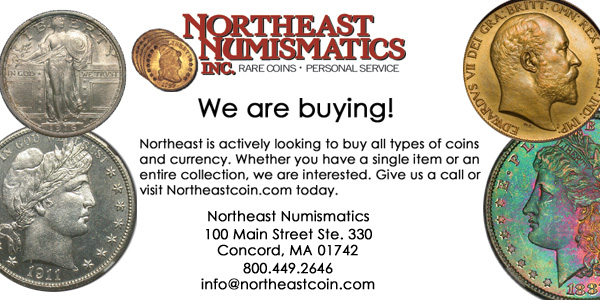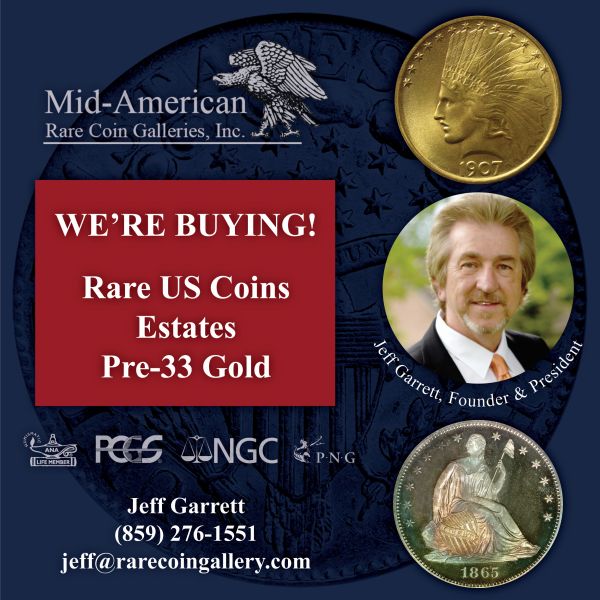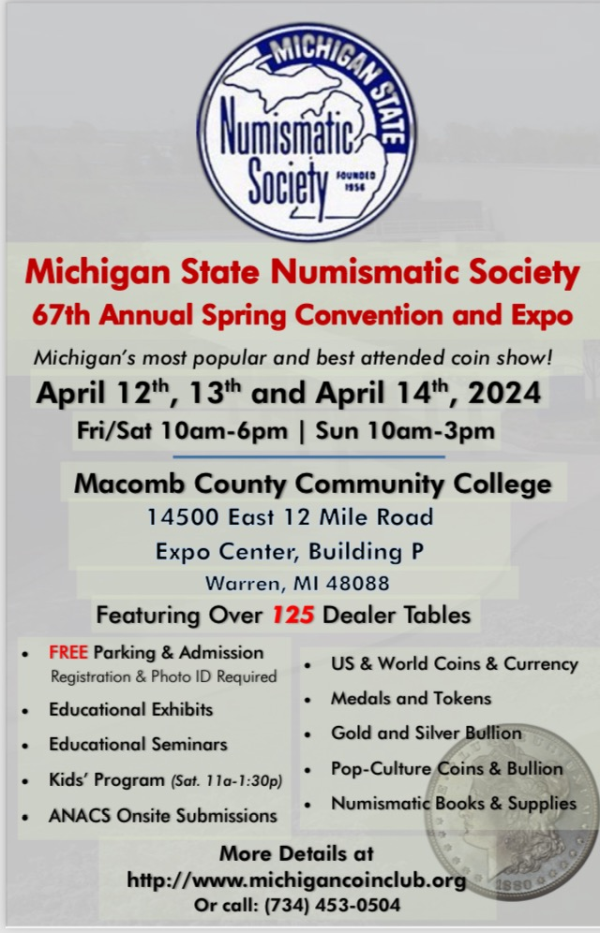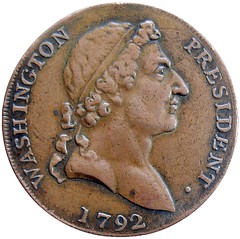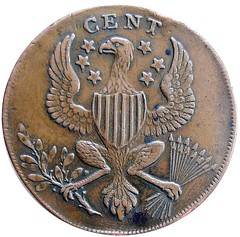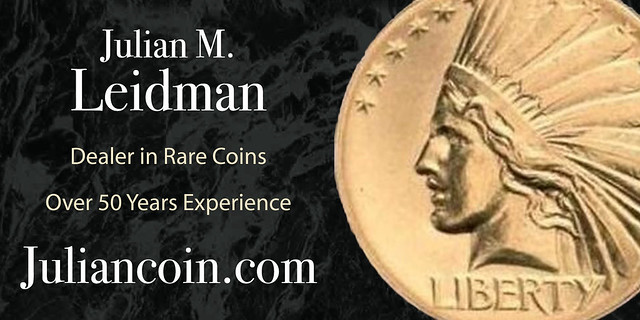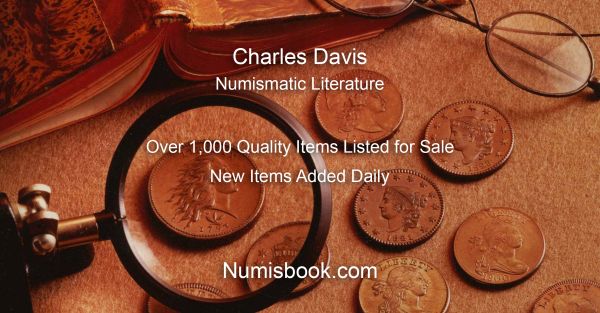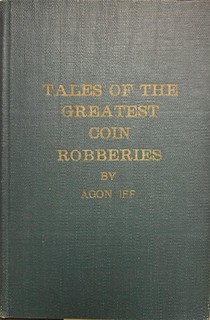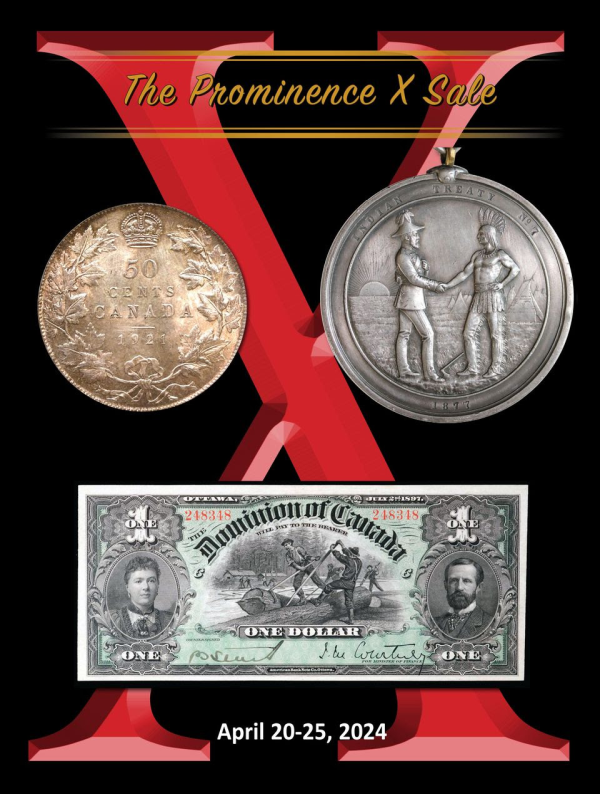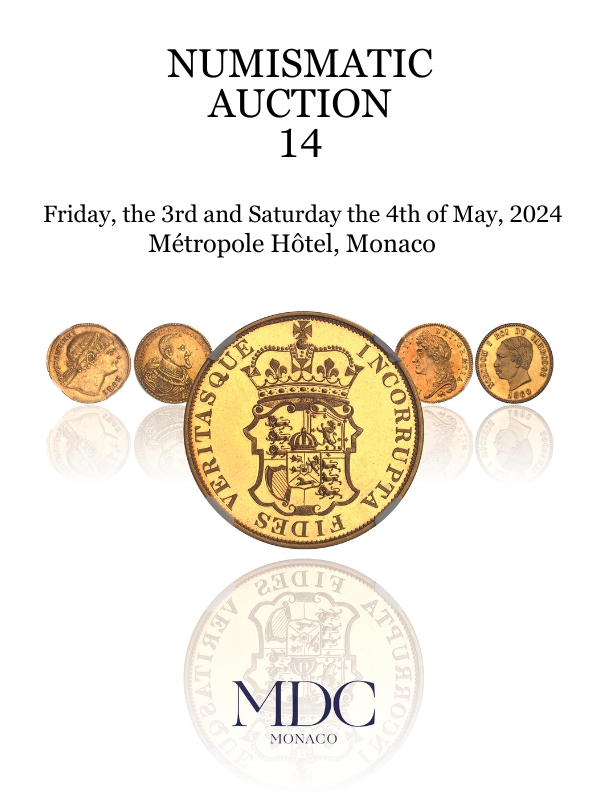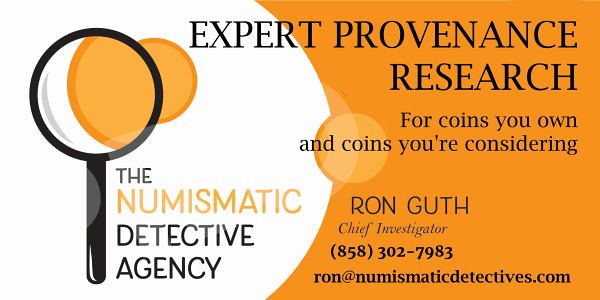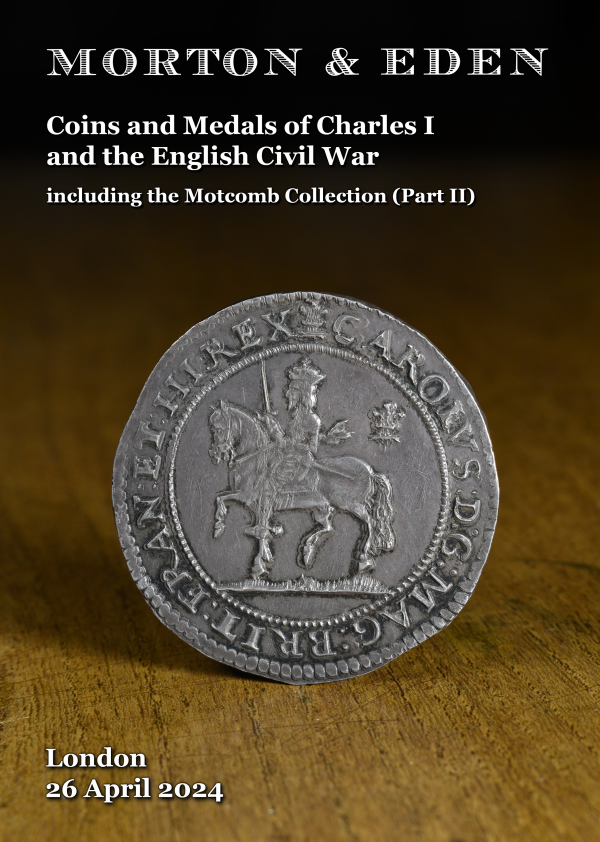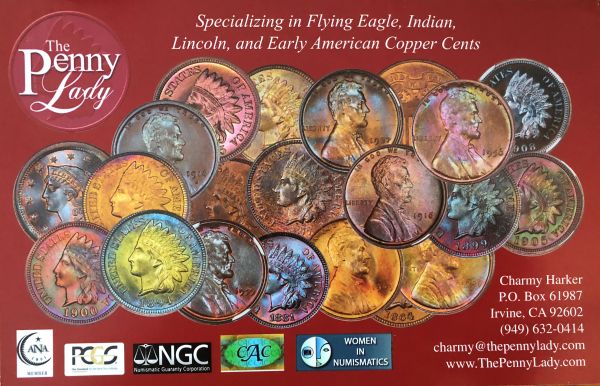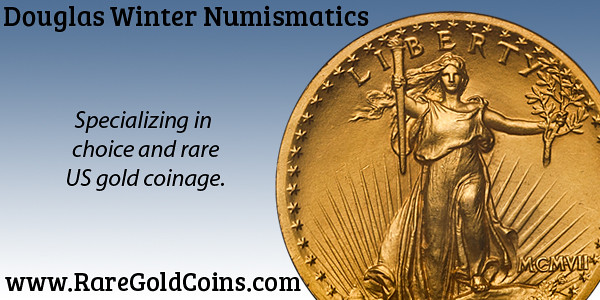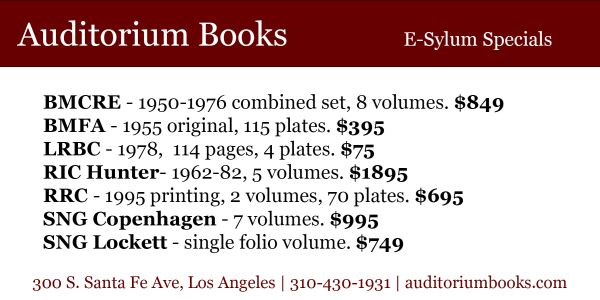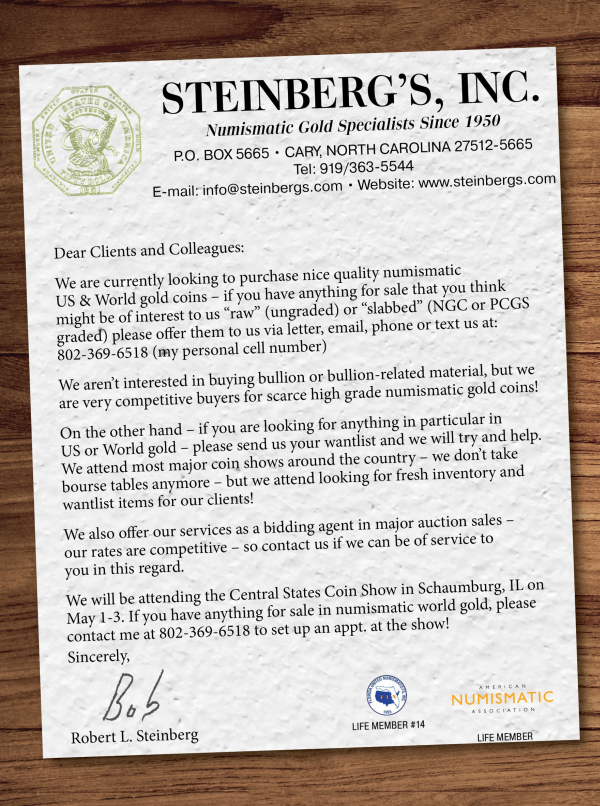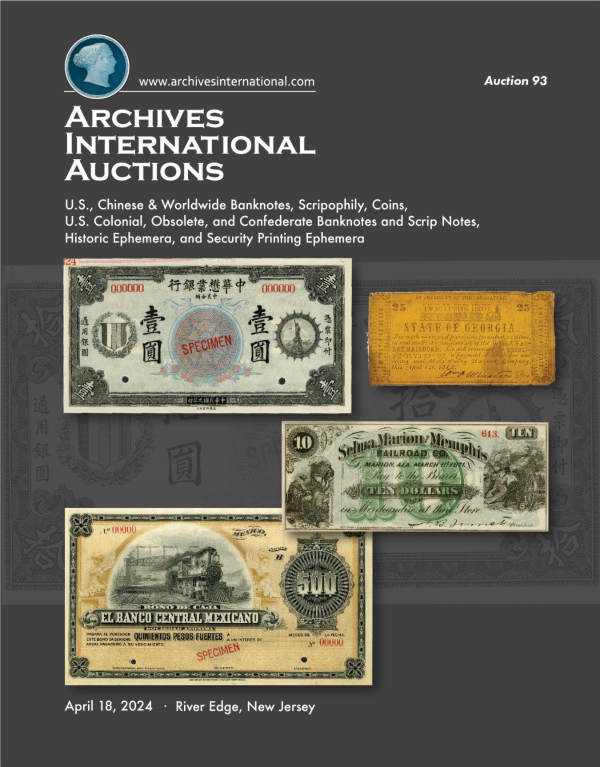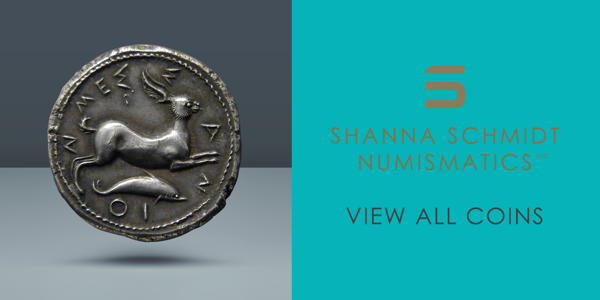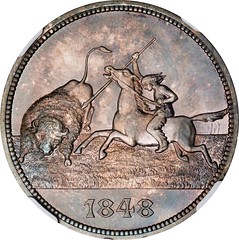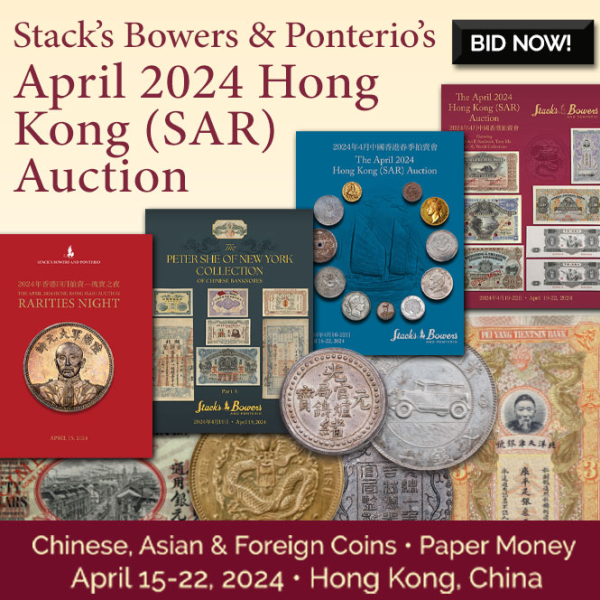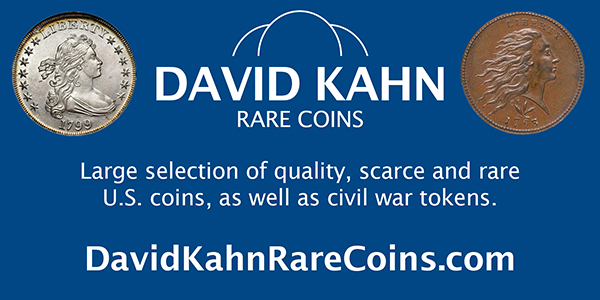
Visit our NBS Sponsors




About UsThe Numismatic Bibliomania Society is a non-profit association devoted to the study and enjoyment of numismatic literature. For more information please see our web site at coinbooks.org SubscriptionsThose wishing to become new E-Sylum subscribers (or wishing to Unsubscribe) can go to the following web page link MembershipThere is a membership application available on the web site Membership Application To join, print the application and return it with your check to the address printed on the application. Print/Digital membership is $40 to addresses in the U.S., and $60 elsewhere. A digital-only membership is available for $25. For those without web access, write to: Jeff Dickerson, Treasurer AsylumFor Asylum mailing address changes and other membership questions, contact Jeff at this email address: treasurer@coinbooks.org SubmissionsTo submit items for publication in The E-Sylum, write to the Editor at this address: whomren@gmail.com BUY THE BOOK BEFORE THE COINSale CalendarWatch here for updates! |
- WAYNE'S WORDS: THE E-SYLUM APRIL 7, 2024
- NBS 2024 CHARITY AUCTION DONATIONS SOUGHT
- LANG LITERATURE AUCTION 2
- BERNARD ROME (1934-2024)
- NNP ADDS HISTORIC WHITMAN TITLES
- CALIFORNIA EXPOSITION ELONGATED PIECES
- VIDEO: NUMISMATIC HOMETOWN COLLECTING
- ON ENGRAVER JOHN GREGORY HANCOCK
- U.S. MINT CERTIFIED FIRST STRIKE COINS
- NOTES FROM E-SYLUM READERS: APRIL 7, 2024
- KEY BRIDGE RELIC MEDALS PROPOSED
- BANK OF CANADA MUSEUM SENSORY SUNDAYS
- 2024 ANA MONEY TALKS SPEAKERS SOUGHT
- VOCABULARY TERMS: PICKLE, PICKLING
- HENRY CLAY EZEKIEL (1846-1930)
- CHAPMAN-ASSEMBLED GOLD DOLLARS SURFACE
- NUMISMAGRAM MEDAL SELECTIONS: APRIL 7, 2024
- MORTON & EDEN APRIL 2024 SALE
- NUMISMATIC NUGGETS: APRIL 7, 2024
- WAYNE'S NUMISMATIC DIARY: APRIL 7, 2024
- WATTON MEDIEVAL SILVER COIN HOARD
- HOUTHI COIN ROLLOUT ROILS YEMEN FACTIONS
- IN-N-OUT BURGER COINS
- 1898 TRANS-MISSISSIPPI EXPOSITION MEDAL
- CURL NOBEL MEDAL IN CHEMISTRY SOLD
- THE 1852 ADELAIDE INGOTS
- WOMEN OF THE BANK OF ENGLAND
- MOUNTAINS OF MARIJUANA MOOLAH
- $30 MILLION L.A. CASH HEIST
Content presented in The E-Sylum is not necessarily researched or independently fact-checked, and views expressed do not necessarily represent those of the Numismatic Bibliomania Society.
WAYNE'S WORDS: THE E-SYLUM APRIL 7, 2024
 New subscribers this week include:
Mike Strub, courtesy Kathy Freeland, and
Jim Burdick.
Welcome aboard! We now have 7,298 subscribers.
New subscribers this week include:
Mike Strub, courtesy Kathy Freeland, and
Jim Burdick.
Welcome aboard! We now have 7,298 subscribers.
Thank you for reading The E-Sylum. If you enjoy it, please send me the email addresses of friends you think may enjoy it as well and I'll send them a subscription. Contact me at whomren@gmail.com anytime regarding your subscription, or questions, comments or suggestions about our content.
This week we open with an NBS update, a numismatic literature auction, one obituary, updates from the Newman Numismatic Portal, and sadly, no new books. Maybe next week.
Other topics this week include the Whitman Numismatic Journal, hometown collecting, U.S. Mint first strike coins, relic medals, sensory Sundays, collector H. C. Ezekiel, fixed price and auction offerings, a medieval coin hoard, Houthi coins, a Nobel medal in Chemistry, Adelaide ingots, and mountains of marijuana moolah.
To learn more about curious medals, Bernard Rome, California Expo elongated coins, engraver John Gregory Hancock, the “Third Cent coined in new Mint – Philadelphia", Key Bridge coins, ANA Money Talks, pickling, Civil War tokens, the Motcomb Collection, Cat Cay Island tokens, J.S.G. Boggs, the Charleston Freedman Badge, and the Man That Makes the Money In the Mint, read on. Have a great week, everyone!
Wayne Homren
Editor, The E-Sylum
NBS 2024 CHARITY AUCTION DONATIONS SOUGHT
Each year at the ANA World's Fair of Money, the Numismatic Bibliomania Society conducts a charity auction to raise funds for the organization. NBS President Len Augsburger submitted this announcement of this year's auction. What could you contribute? -Editor
NBS Solicits Donations for 2024 Charity Auction
The NBS requests donations of numismatic literature for the 2024 Charity Auction, which will be held at the ANA convention in August. The Charity Auction covers a good portion of the NBS annual expenses, and we gratefully acknowledge past donors and bidders. While material at varied price points is welcome, we especially encourage donations of literature valued at $100 and up. Top honors from last year’s sale went to Carl Würtzbach’s annotated and plated copy of Henry Chapman’s Bement sale (1916), donated by David Steine, which realized $3,000. Donations may be sent to NBS president Len Augsburger at 16 N. Fiore Parkway, Vernon Hills, IL 60061.
LANG LITERATURE AUCTION 2
The second numismatic literature auction from Numismatic Antiquarian Bookshop Lang closes April 28. Here's the announcement. -Editor
We are pleased to inform you that the Numismatic Antiquarian Bookshop Lang will be holding its second literature auction on 28 April 2024 its second literature auction.
- Date: April 28, 2024
- Location: Live auction via Auex
- Time: Start at 14:00 CEST
Alternatively, you can also use the auction platforms Biddr and Sixbid to place your pre-bids.
After the great success of our first auction, we cordially invite you to participate in this event. Discover a wide range of high-quality numismatic literature, including rare books, catalogs and specialist journals from various eras and fields of numismatics.
BERNARD ROME (1934-2024)
Numismatic market pioneer Bernard Rome passed away in West Palm Beach, Florida on March 9, 2024. Here's an excerpt from the Vermonter's obituary. -Editor
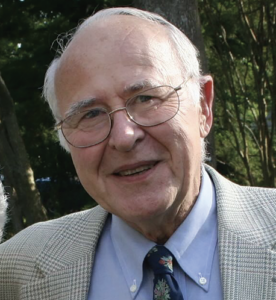 Bernard Rome was born in Burlington, July 18, 1934, but his family moved to Clinton Ave. in Rutland when he was 2 years old. Rome attended Rutland High School (Class of 1952) where he later returned as a graduation speaker. He was a lifelong member of the Rutland Jewish Center, which is where he was when Pearl Harbor was attacked in 1941, launching the U.S. into World War II. Bernard’s father, Louis, was the oldest man drafted in the state of Vermont and served as a chaplain’s assistant in the war. Rome was predeceased by his father, Louis, his mother, Celia (Katz), and his brother, Newman.
Bernard Rome was born in Burlington, July 18, 1934, but his family moved to Clinton Ave. in Rutland when he was 2 years old. Rome attended Rutland High School (Class of 1952) where he later returned as a graduation speaker. He was a lifelong member of the Rutland Jewish Center, which is where he was when Pearl Harbor was attacked in 1941, launching the U.S. into World War II. Bernard’s father, Louis, was the oldest man drafted in the state of Vermont and served as a chaplain’s assistant in the war. Rome was predeceased by his father, Louis, his mother, Celia (Katz), and his brother, Newman.
The family opened a business in Rutland in the 1960s which later turned into the Ski Shack and moved in 1976 to the corner of Route 4 and the Killington Access Road, where it flourished for decades.
NNP ADDS HISTORIC WHITMAN TITLES
Great news for researchers! Long-awaited new additions to the Newman Numismatic Portal are two classic Whitman periodicals. Project Coordinator Len Augsburger provided the following report. -Editor
Whitman Brands and Newman Numismatic Portal Announce Availability of Historic Whitman Titles
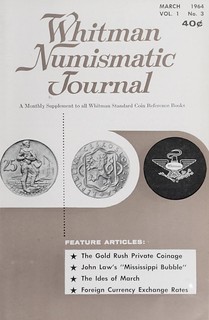 The 1960s brought an intense public interest in coin collecting with the withdrawal of silver coinage from circulation. Coin stores appeared in nearly every city of a certain size, and increasingly thick numismatic publications were targeted at the collecting public. One of these titles was the Whitman Numismatic Journal, published monthly from 1964 to 1968. Edited by Ken Bressett, the Journal contained articles by Q. David Bowers, R. W. Julian, Neil Shafer, and other prominent writers. Whitman also published the Whitman Coin Supply Merchandiser, which was aimed at retailers of numismatic supplies. This publication contains little-known tidbits on various Whitman products of the day, such as books like The Fantastic 1804 Dollar. More recently, David Lange used this publication as part of his extensive research into coin albums and folders.
The 1960s brought an intense public interest in coin collecting with the withdrawal of silver coinage from circulation. Coin stores appeared in nearly every city of a certain size, and increasingly thick numismatic publications were targeted at the collecting public. One of these titles was the Whitman Numismatic Journal, published monthly from 1964 to 1968. Edited by Ken Bressett, the Journal contained articles by Q. David Bowers, R. W. Julian, Neil Shafer, and other prominent writers. Whitman also published the Whitman Coin Supply Merchandiser, which was aimed at retailers of numismatic supplies. This publication contains little-known tidbits on various Whitman products of the day, such as books like The Fantastic 1804 Dollar. More recently, David Lange used this publication as part of his extensive research into coin albums and folders.
CDN Publishing and Newman Numismatic Portal are pleased to announce that both of these publications are now available with full-view on Newman Portal, with the Whitman Coin Journal posted at https://nnp.wustl.edu/library/publisherdetail/532083, while the Whitman Coin Supply Merchandiser is available at https://nnp.wustl.edu/library/publisherdetail/535094. Ken Bressett noted “We greatly enjoyed producing these publications in the 1960s and I am pleased they are being shared with today’s collectors.”
CALIFORNIA EXPOSITION ELONGATED PIECES
Another new addition to the Newman Numismatic Portal is Benjamin Gastfriend's research on California Exposition Elongated Pieces. Project Coordinator Len Augsburger provided the following report. -Editor
Benjamin Gastfriend Publishes on Elongated Pieces of the California Expositions (1915-1916)
 The 1914 opening of the Panama Canal served as the theme for two expositions: the Panama-Pacific International Exposition held in San Francisco in 1915, and the Panama-California (International) Exposition held in San Diego in 1915-1916. Elongated coins, first widely introduced as souvenirs at the 1893 World’s Columbian Exposition in Chicago, had become a popular feature of expositions, but the details surrounding their production have remained enigmatic. Here, using archival documents, Gastfriend demonstrates that the elongated coins produced at both 1915-1916 California expositions were the creation of the same man, Joseph Weis, who also operated other exposition concessions.
The 1914 opening of the Panama Canal served as the theme for two expositions: the Panama-Pacific International Exposition held in San Francisco in 1915, and the Panama-California (International) Exposition held in San Diego in 1915-1916. Elongated coins, first widely introduced as souvenirs at the 1893 World’s Columbian Exposition in Chicago, had become a popular feature of expositions, but the details surrounding their production have remained enigmatic. Here, using archival documents, Gastfriend demonstrates that the elongated coins produced at both 1915-1916 California expositions were the creation of the same man, Joseph Weis, who also operated other exposition concessions.
These documents also reveal the legal and financial arrangements between Weis and exposition organizers. Together, this work contributes new pieces of documentary evidence related to early elongated coin production. This research was sponsored by the Eric P. Newman Numismatic Education Society (EPNNES), which awarded a Newman Grant to Gastfriend in 2023.
VIDEO: NUMISMATIC HOMETOWN COLLECTING
The David Lisot Video Library on the Newman Numismatic Portal can be found at:
https://nnp.wustl.edu/library/multimediadetail/522852
We highlight one of his videos each week in The E-Sylum. Here's one from 2005 with Arthur Fitts speaking about hometown collecting. -Editor
ON ENGRAVER JOHN GREGORY HANCOCK
Pete Smith submitted these notes on the engraver of the 1792 Washington Roman Head Cent. An electrotype was discussed in last week's issue. -Editor
Sometimes I think I could spend half my time attempting to correct errors published by others. Although our book, 1792: Birth of a Nation’s Coinage, debunked many of the myths associated with the coinage, authors continue to repeat those myths.
THE BOOK BAZARRE
U.S. MINT CERTIFIED FIRST STRIKE COINS

Last week Roger Burdette shared a letter from the Director of the Mint enclosing "...the first One Cent Bronze Coin struck in the United States mints in the year 1912." I asked if any such coins have turned up with accompanying Mint documentation. Daryl Haynor submitted these images of a 1909 Philadelphia Indian Cent with "First piece coined" documentation. Thanks! -Editor
NOTES FROM E-SYLUM READERS: APRIL 7, 2024
2024 April Fool Numismatic Literature
A reader writes:
"I hope that we will be seeing a book review on “Tales of the Greatest Coin Robberies”. Sounds like a fascinating and fun read. What a find. Not knowing the contents makes it that much more fun."
Pete Smith asked:
"Aprille Phoole Publishing?"
Daniel Fearon writes:
"Another splendid E-Sylum. I’m so glad that David Pickup informed us all of the new publication from Aprille Phoole Publishing, the Encyclopedia of Slabbed Coins. I hope he will be swamped with orders."
 Well, those two pieces were April Fool items. The Tales book actually exists in physical form - it's an old Redbook rebound as a gag item. It's part of my next library consignment to Kolbe & Fanning. Dave Fanning kindly provided the photo. It was earlier in the library of former ANA Governor Ray Byrne, although I've forgotten how and where I obtained this. Fun item.
Well, those two pieces were April Fool items. The Tales book actually exists in physical form - it's an old Redbook rebound as a gag item. It's part of my next library consignment to Kolbe & Fanning. Dave Fanning kindly provided the photo. It was earlier in the library of former ANA Governor Ray Byrne, although I've forgotten how and where I obtained this. Fun item.
The French coin with the Sower wearing boxing gloves? Real. -Editor
To read the earlier E-Sylum articles, see:
NOTES FROM E-SYLUM READERS: MARCH 31, 2024 : New Book on Slabbed Coins
(https://www.coinbooks.org/v27/esylum_v27n13a12.html)
WAYNE'S NUMISMATIC DIARY MARCH 31, 2024
(https://www.coinbooks.org/v27/esylum_v27n13a23.html)
A Wall Street Journal article by Peter Funt explores the art of pranking. -Editor
A Golden Age of practical joking came between 1920 and 1950, when pranksters were particularly daring. One influential character of the period was the illustrator Hugh Troy, a man who could not tolerate the status quo. He once bought a bench and waited until a cop tried to arrest him as he “stole” it from the park. While in the military he filed a bogus “Daily Flypaper Report,” listing every insect caught in the previous 24 hours, and soon the Army demanded similar paperwork from other officers. In 1935 Troy made a fake human ear out of corned beef and placed it in a display box at New York’s Museum of Modern Art with a sign: “This is the ear which Vincent van Gogh cut off and sent to his mistress, a French prostitute, Dec. 24, 1888.” It drew a large crowd.
To read the complete article, see:
(https://www.wsj.com/arts-culture/the-art-of-the-april-fools-day-prank-071505df)
Other topics this week include Giftees, Uncirculated Medals, the history of the word Maundy, and rarity of French medals. -Editor
KEY BRIDGE RELIC MEDALS PROPOSED
Jeff Starck writes:
"I like this idea! A letter to the editor writer for the Baltimore Sun proposes a relic medal be made to raise funds for those affected by the tragic collapse of the Key Bridge. Of course, they're not called relic medals in this column, but "coins" but you can't win them all!"
 Key Bridge coins: They worked for the U.S.S. Constellation.
Key Bridge coins: They worked for the U.S.S. Constellation.
The steel salvaged from the deck of the Dali and the bottom of the Patapsco River can certainly be piled up and sold for salvage for a few hundred dollars a ton, or maybe we can do better. Let’s stamp coins from the steel salvaged from Francis Scott Key Bridge with all proceeds going to help the businesses and employees whose livelihoods are affected by the tragedy and extended harbor closing and those families who lost loved ones in the collapse.
BANK OF CANADA MUSEUM SENSORY SUNDAYS
A Canadian Coin News article discusses 'Sensory Sundays' at the Bank of Canada Museum. -Editor
The Bank of Canada Museum presents “Sensory Sundays,” a special initiative designed to accommodate individuals with sensory sensitivities.
On select Sundays throughout 2024, visitors to the Ottawa, Ont., Bank of Canada Museum will have the opportunity to immerse themselves in a sensory-friendly environment filled with engaging activities. From hands-on exploration of artifacts to guided tours showcasing touchable exhibits, Sensory Sundays promise an enriching experience for all attendees.
2024 ANA MONEY TALKS SPEAKERS SOUGHT
It's never too soon to plan for an ANA World's Fair of Money® convention. E-Sylum readers are perfectly suited to speak on their numismatic specialties, and the ANA is looking for Money Talks presenters. The deadline is approaching, so don't miss your chance! -Editor
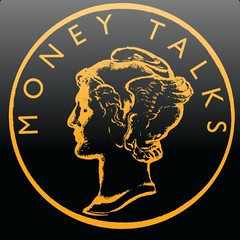 American Numismatic Association (ANA) members are encouraged to share their ideas and research with fellow hobbyists by delivering a Money Talks presentation at the 2024 World's Fair of Money in Chicago (Rosemont), Aug. 6-10 at the Donald E. Stephens Convention Center.
American Numismatic Association (ANA) members are encouraged to share their ideas and research with fellow hobbyists by delivering a Money Talks presentation at the 2024 World's Fair of Money in Chicago (Rosemont), Aug. 6-10 at the Donald E. Stephens Convention Center.
Those interested in giving a Money Talks presentation should submit an online proposal at money.org/numismatic-events/money-talks. Proposals are due no later than Friday, April 12. The talks will take place Thursday Aug. 8 and Friday Aug. 9.
VOCABULARY TERMS: PICKLE, PICKLING
Here's another entry from Dick Johnson's Encyclopedia of Coin and Medal Terminology. -Editor
Pickle, Pickling. Use of a mild acid solution to clean, remove tarnish or corrosion from a metallic surface. Most pickle solutions are made of dilute quantities of sulfuric or nitric acid. If particularly stubborn tarnish exists (as certain oxides) then potassium dichromate is added to the acid solution. A pickle bath (or barrel tumbling, see WHITENING) is often used on blanks to clean them prior to coining or striking. In casting, a pickle bath removes scale as well as other surface impurities.
HENRY CLAY EZEKIEL (1846-1930)
E-Sylum Feature Writer and American Numismatic Biographies author Pete Smith submitted this article on Cincinnati collector Henry Clay Ezekiel. Thanks! -Editor
I recently wrote about Peter Mougey of Cincinnati. While doing research on him, I came across an article in The Cincinnati Inquirer of June 4, 1911, which mentioned another local collector: “For many years he has paid particular attention to coins and medals, and since the death of Thomas C. Cleneay and Peter Mougey is the most notable numismatist in the city.”
CHAPMAN-ASSEMBLED GOLD DOLLARS SURFACE
A high-grade collection of gold dollars recently surfaced in Philadelphia; here's the announcement. -Editor
A previously unreported, nearly complete date set of 19th-century United States $1 denomination gold coins assembled by legendary Philadelphia dealer Henry Chapman has been revealed by Matador Rare Coins in New York City.
Stored until recently in a Philadelphia bank vault and safe deposit boxes for more than a century, the formerly hidden collection has 51 Liberty Head and Indian Princess Head dollars struck between 1849 and 1889 as well as eight U.S. commemorative gold dollars struck in the first decades of the 20th-century.
The set, now described as The Henry Chapman Collection of $1 Gold, has been owned and securely stored for generations by a Philadelphia area family. The current owners thought their ancestors’ coins might be worth about $50,000, but they are now insured for $2 million, according to Luis Martinez, founder and president of Matador Rare Coins He is working with the set’s owners who want to remain anonymous.
NUMISMAGRAM MEDAL SELECTIONS: APRIL 7, 2024
Jeremy Bostwick with Numismagram forwarded these five items from his most recent upload of new material to his site. This upload featured a great mix of topics and themes, spanning the realm of historical medals to modern, and with some colorful toning thrown in as well. For all of the new items, please visit https://www.numismagram.com/inventory.
Great medals! -Editor
102784 | GREAT BRITAIN. England. Elizabeth I "Phoenix Badge" oval cast silver Medal. Issued circa mid-late 18th century (40mm x 44mm, 29.10 g, 12h). + HEI MIHI QVOD TANTO VIRTVS PERFVSA DECORE NON HABET ETERNOS INVIOLATA DIES / ELISABETHA D G ANG FR ET HIB REGINA (Alas! That virtue endued with so much beauty, should not uninjured enjoy perpetual life), bust left wearing ruffled collar and with hair in bonnet // FELICES ARABES MVNDI QVIBVS VNICA PHŒNIX PHŒNICEM REPARAT DEPEREVNDO NOVAM/ O MISEROS ANGLOS MVNDI QVIBVS VNICA PHŒNIX VLTIMA FIT NOSTRO TRISTIA FATA SOLO (Happy Arabs whose only Phoenix reproduces by its death a new Phoenix. Wretched English whose only Phoenix becomes, unhappy fate, the last in our country), Phoenix standing slightly left amid flames, with wings spread; above, crowned monogram of Elizabeth. Edge: Some filing marks as made. Cf. MI 124/70 (for prototype); cf. Eimer 48B (same). Choice Extremely Fine. Attractively toned, with some wear upon the high points and great relief on the obverse. A rare and very desirable type, with originals being virtually unobtainable. $985.
The originals of this type, almost never encountered, are believed to date to 1574, as the dress of the queen is less decorated than normal, and in that year, she issued a proclamation that condemned the use of excess ornamentation. Given the sentiments expressed in the legends, and the idea of a loss of the queen, it may indicate that it was worn by those personally attached to her at a time at which the plague was raging in London.
To read the complete item description, see:
102784 | GREAT BRITAIN. England. Elizabeth I oval cast silver "Phoenix Badge"
(https://www.numismagram.com/product-page/102784)
MORTON & EDEN APRIL 2024 SALE
Morton & Eden's London sale of coins and medals of Charles I and the English Civil War includes Part II of the Motcomb Collection and closes April 26, 2024. Here's an overview from the catalogue's introduction. -Editor
 The Motcomb Collection contains spectacular Charles I silver coins of exceptional rarity and
quality, many of the provincial and siege pieces being numbered amongst the finest known
specimens. Gold coins are represented by three Tower mint unites, three Oxford triple unites
and a Scottish unite by Nicholas Briot. Chosen with great discernment, most of the coins are
accompanied by tickets confirming their distinguished earlier provenances and, sometimes, by
more recent notes.
The Motcomb Collection contains spectacular Charles I silver coins of exceptional rarity and
quality, many of the provincial and siege pieces being numbered amongst the finest known
specimens. Gold coins are represented by three Tower mint unites, three Oxford triple unites
and a Scottish unite by Nicholas Briot. Chosen with great discernment, most of the coins are
accompanied by tickets confirming their distinguished earlier provenances and, sometimes, by
more recent notes.
In this catalogue we have generally, though not invariably, followed the arrangement of the well known sylloge of the John G. Brooker Collection, compiled by J.J. North and P.J. Preston-Morley (Sylloge of Coins of the British Isles, vol. 33, Spink, 1984).
NUMISMATIC NUGGETS: APRIL 7, 2024
Here's a selection of interesting or unusual items I came across in the marketplace this week. Tell us what you think of some of these. -Editor
Magistrat Zenodotos Tetradrachm
AR-Tetradrachme 360-350 v. Chr., Magistrat Zenodotos. 15.29 g. Vs.: Biene, Rs.: Hirschprotome n. r., Kopf n. l., links Dattelpalme. BMC 43; Karwiese II, Serie 11.1, Stempel O84/R2; P. Kinns, The Pixodarus Hoard: Ephesus, CH IX, class F obverse 84; SNG v. Aulock -; SNG Cop. -
Offered by Kölner Münzkabinett. -Editor
To read the complete lot description, see:
Lot 91
AR-Tetradrachme 360-350 v. Chr., Magistrat Zenodotos.
(https://koelner-muenzkabinett.auex.de/Auktion/Onlinekatalog?intAuktionsId=1481&losnr=91)
Other topics this week include the Imperial Order of the Dragon medal, Cat Cay Island tokens, and the Iran-U.S. Friendship And Solidarity medal. -Editor
WAYNE'S NUMISMATIC DIARY: APRIL 7, 2024
 This week brought a special treat - a trip to the Newman Numismatic Portal offices at Washington University in St. Louis. I got moving before sunup on Wednesday, making it to my gate at Dulles airport with plenty of time to spare. I was tired, but got a second wind while on the airplane, and spent much of the flight rereading Lawrence Weschler's book, Boggs: A Comedy of Values. It would be a refresher for my Wednesday talk on money artist J.S.G. Boggs in conjunction with the exhibit of his works from my collection.
This week brought a special treat - a trip to the Newman Numismatic Portal offices at Washington University in St. Louis. I got moving before sunup on Wednesday, making it to my gate at Dulles airport with plenty of time to spare. I was tired, but got a second wind while on the airplane, and spent much of the flight rereading Lawrence Weschler's book, Boggs: A Comedy of Values. It would be a refresher for my Wednesday talk on money artist J.S.G. Boggs in conjunction with the exhibit of his works from my collection.
It had been a long time since I'd opened my copy of the book, and I was delighted to see it had been signed by both Boggs himself and Tom Hipschen, the B.E.P. portrait engraver who created the delightful cover portrait of Boggs.
WATTON MEDIEVAL SILVER COIN HOARD
This BBC article describes a hoard of medieval silver coins recently declared as treasure under British law. -Editor
 A hoard of medieval, pure silver pennies unearthed by a metal detectorist was probably the contents of a lost purse.
A hoard of medieval, pure silver pennies unearthed by a metal detectorist was probably the contents of a lost purse.
A mixture of 69 pennies, halfpennies and farthings were found in late 2021 and early 2022 near Watton, Norfolk.
Coin expert Adrian Marsden said "with a penny worth about a day's wages, the loss represents upwards of two month's work and wages" for a medieval worker. The hoard, which dates to Henry II's reign, has been declared treasure.
Dr Marsden, from the Norfolk Historic Environment Service, believes it was probably lost by a merchant, "someone who's dealing in coins all the time so he's got fractions as well as pennies".
HOUTHI COIN ROLLOUT ROILS YEMEN FACTIONS
Houthi rebels in Yemen have issued a new coin. Found via News & Notes from the Society of Paper Money Collectors (Volume IX, Number 42, April 2, 2024). -Editor
Tensions escalated Sunday between Yemen’s rival warring factions after the Houthi group announced issuing a new 100 riyal coin, a move swiftly rejected by the internationally recognized government as a “dangerous escalation” involving counterfeit currency.
The Houthi-controlled Central Bank of Yemen, headquartered in the capital Sanaa, unveiled its plan to circulate the new 100 riyal coin starting Sunday to substitute banknotes of the same denomination that have been rendered damaged and unusable.
IN-N-OUT BURGER COINS
In the turning-burger-fans-into-numismatists-for-70-years department, here's a story about In-N-Out Burger coins. -Editor
There is a rare In-N-Out Burger souvenir that you can get for free and sell for nearly $1,000 online. There are many rumors about how to get your hands on one of these collectors items, but only one way how: being the first customer at a new In-N-Out restaurant.
The first customer at a new store opening, which are said to be not celebrated or advertised, will receive the coveted In-N-Out coin.
1898 TRANS-MISSISSIPPI EXPOSITION MEDAL
Stack's Bowers Numismatist Asher Zelson published an article about a great medal from the 1898 Trans-Mississippi and International Exposition. -Editor
Stirred to action by the far-reaching influence of the 1893 Chicago World’s Fair and eager to restore life to a city negatively affected by the decade’s economic depression, community leaders and businessmen from Omaha, Nebraska, decided to hold their own international exposition: the 1898 Trans-Mississippi and International Exposition, held at the northern edge of the city, near the Missouri River. Supervising architects C. Howard Walker and Thomas R. Kimball highlighted the popular Classical and Renaissance-style architectural movements of the time; merchants and industry-people worked to highlight the products, resources, and commercial interests of the states and territories west of the Mississippi. During the five months it was open, more than 2.6 million people attended the over 4,000 exhibits. These included then-President William McKinley and William Jennings Bryan, who had lost the presidential election to McKinley two years prior.
CURL NOBEL MEDAL IN CHEMISTRY SOLD
Another gold Nobel prize medal has traded hands, this time an important one in Chemistry. -Editor
The 1996 Nobel Prize in Chemistry awarded to Robert F. Curl, Jr. for his groundbreaking discovery of fullerenes, a class of carbon nanoparticles revolutionizing various fields of applied science was auctioned by Nate D. Sanders for $442,891 tonight. It received four bids.
First uncovered in 1985 by Curl and his colleagues, fullerenes have since played a pivotal role in transforming multiple facets of modern science.
Resembling a hollow soccer ball or the iconic geodesic dome pioneered by architect Buckminster Fuller, fullerenes have emerged as a cornerstone in scientific innovation. Their versatile applications span across energy, disease treatment, and even human longevity.
THE 1852 ADELAIDE INGOTS
Andrew Crellin of Australia's Sterling & Currency published a new research article on the 1852 Adelaide Ingots. Here's a short excerpt - see the complete article online. -Editor
 Ingots As Relics of the World’s Gold Booms
Ingots As Relics of the World’s Gold Booms
History shows that the early days of any gold rush are marked by chaos, opportunity and a quick evolution of infrastructure. Vast quantities of gold can be mined and refined into a convertible form well before any mint is established.
The two largest gold rushes before those in Australia in the 1850s were in Brazil (spanning from the 1690s right throughout the 18th century) and California from 1849. Ingots from these gold rushes are highly prized by historians, economists and collectors for their tangible links to two of the most influential events in world economic history.
WOMEN OF THE BANK OF ENGLAND
This Bank of England blog article discusses the roles of women bank employees. -Editor
 Janet Hogarth was the first woman to work in the Bank, appointed in 1894. Her job was to supervise a small team of women who sorted used banknotes. At the outbreak of the First World War there were only 65 women clerks appointed by the Bank, but this had risen to 1,309 by 1919.
Janet Hogarth was the first woman to work in the Bank, appointed in 1894. Her job was to supervise a small team of women who sorted used banknotes. At the outbreak of the First World War there were only 65 women clerks appointed by the Bank, but this had risen to 1,309 by 1919.
The women clerks had a separate pay structure which was to remain until 1958 and were paid less than men. The salary scheme for the men was designed to provide a substantial increase about the time a man usually married, which the Bank judged to be around 28. The women in contrast had to leave the Bank on marriage, on receipt of a lump sum, which was essentially a dowry. This was because the Bank, in common with the Civil Service, operated a marriage bar that was strictly enforced. Whilst this may seem unfair today, the Bank were acting in accordance with public opinion of the time. The Bank’s marriage bar was finally rescinded in 1949, due to post war labour shortages.
MOUNTAINS OF MARIJUANA MOOLAH
Well, if the National Park service won't take your cash, your friendly local marijuana dispensary has no choice but to. A Wall Street Journal article discusses the growing piles of cash that legal sellers accumulate because banks refuse to touch it. -Editor
 Clayton Taylor recently received an urgent call: A marijuana distributor needed him to pick up $400,000 and move it across California.
Clayton Taylor recently received an urgent call: A marijuana distributor needed him to pick up $400,000 and move it across California.
Taylor isn’t a drug mule—he runs a company that provides security services to legal cannabis companies. A client’s bank account had been frozen, and the next day was payday. Could Taylor transport cash the company had stowed away so it could pay its roughly 100 staffers?
He and two other armed guards retrieved the money, which the company had in $20 and $100 bills in a duffel bag. They spent the night at a hotel, the bag never leaving their sight, and dropped off the cash the next day.
$30 MILLION L.A. CASH HEIST
Paul Horner passed along this article about a massive cash heist in los Angeles. Thanks. Imagined image generated by Microsoft Copilot. -Editor
 In one of the largest cash heists in Los Angeles history, thieves made off with as much as $30 million in an Easter Sunday burglary at a San Fernando Valley money storage facility, an L.A. police official said.
In one of the largest cash heists in Los Angeles history, thieves made off with as much as $30 million in an Easter Sunday burglary at a San Fernando Valley money storage facility, an L.A. police official said.
The burglary occurred Sunday night at a facility in Sylmar where cash from businesses across the region is handled and stored, said L.A. Police Department Cmdr. Elaine Morales.
The thieves were able to breach the building as well as the safe where the money was stored, Morales said. Law enforcement sources said the burglary was among the largest in city history when it comes to cash, and the total also surpassed any armored-car heist in the city.

